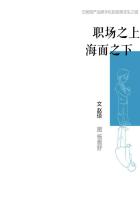In consequence of the contraction of the time of circulation from 3 weeks to 2, and consequently of the period of turnover from 9 weeks to 8, one-ninth of the total capital advanced becomes superfluous. The 6-week working period can now be kept going as continuously with £;800 as formerly with £;900. One portion of the value of the commodity-capital, equal to £;100, once it has been reconverted into money, persists therefore in the state of money-capital without performing any more functions as a part of the capital advanced for the process of production. While the scale of production and other conditions, such as prices, etc., remain the same, the sum of value of the advanced capital is reduced from £;900to £;800. The remainder of the originally advanced value amounting to £;100 is eliminated in the form of money-capital. As such it enters the money-market and forms an additional portion of the capitals functioning here.
This shows the way in which a plethora of money-capital may arise -- and not only in the sense that the supply of money-capital is greater than the demand; this is always only a relative plethora, which occurs for instance in the 搈elancholy period" opening a new cycle after the end of a crisis. But also in the sense that a definite portion of the capital-value advanced becomes superfluous for the operation of the entire process of social reproduction which includes the process of circulation and is therefore eliminated in the form of money-capital -- a plethora brought about by the mere contraction of the period of turnover, while the sale of production and pries remain the same. The amount of money in circulation, whether great or small, did not influence it in the least.
Let us assume on the contrary that the period of circulation is prolonged from, say, 3 weeks to 5. In that case at the very next turnover the reflux of the advanced capital takes place 2 weeks too late. The last part of the process of production of this working period cannot be carried on further by the mechanism of the turnover of the advanced capital itself.
Should this condition last any length of time, a contraction of the process of production, a reduction of its volume, might take place, just as an extension occurred in the previous case. But in order to continue the process on the same scale, the advanced capital would have to be increased by 2/9, or £;200, for the entire term of the prolongation of the circulation period. This additional capital can be obtained only from the money-market.
If the lengthening of the period of circulation applies to one or several big branches of business, it may exert pressure on the money-market, unless this effect is paralysed by some counter-effect. In this case it is likewise evident and obvious that this pressure, like that plethora before, had nothing whatever to do with a movement either of prices of the commodities or the mass of existing circulating medium.
[The preparation of this chapter for publication presented no small number of difficulties. Firmly grounded as Marx was in algebra, he did not get the knack of handling figures, particularly commercial arithmetic, although there exists a thick batch of copybooks containing numerous examples of all kinds of commercial computations which he had solved himself. But knowledge of the various methods of calculation and exercise in daily practical commercial arithmetic are by no means the same, and consequently Marx got so tangled up in his computations of turnovers that besides places left uncompleted a number of things were incorrect and contradictory. In the tables reproduced above I have preserved only the ******st and arithmetically correct data. My reason for doing so was mainly the following:
The uncertain results of these painstaking calculations led Marx to attach unwarranted importance to a circumstance, which in my opinion, has actually little significance. I refer to what he calls the 搑elease"of money-capital. The actual state of affairs, based on the above assumptions, is this:
No matter what may be the ratio between the working period and circulation time, hence between capital I and capital II, there is returned to the capitalist, in the form of money, after the end of the first turnover and thereafter at regular intervals equal to the duration of one working period, the capital required for one working period, i.e., a sum equal to capital I.
If the working period is 5 weeks, the circulation time 4 weeks, and capital I £;500, then a sum of money equal to £;500 returns each time at the end of the 9th, 14th, 19th, 24th, 29th week, etc.
If the working period is 6 weeks, the circulation time 3 weeks, and capital I £;600, then £;600 return at the end of the 9th, 15th, 21st, 27th, 33rd week, etc.
Finally, if the working period is 4 weeks, the circulation time 5 weeks, and capital I £;400, then £;400 are returned at the end of the 9th, 13th, 17th, 21st, 25th week, etc.
Whether any, and if so how much, of this returned money is superfluous and thus released for the current working period is immaterial. It is assumed that production continues uninterruptedly on the current scale, and in order that this may come about money must be available and must therefore return, whether 搑eleased" or not. If production is interrupted, release stops likewise.
In other words: There is indeed a release of money, a formation therefore of latent, merely potential, capital in the form of money. But it takes place under all circumstances and not only under the special conditions set forth in the text; and it comes about on a larger scale than that assumed in the text. So far as circulating capital I is concerned, the industrial capitalist is in the same situation at the end of each turnover as when he established his business: he has all of it in one bulk, while he can convert it back into productive capital only gradually.















